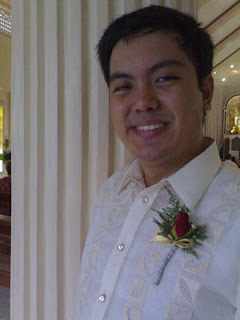As I was reading through the compilation of abstracts I noticed that
 majority of the papers were quantitative researches. Quantitative research uses hard facts to support its claims. Such research is intended to describe certain state of affairs.
majority of the papers were quantitative researches. Quantitative research uses hard facts to support its claims. Such research is intended to describe certain state of affairs.While I have nothing against quantitative research I feel that it is quite limiting. Quantitative research is descriptive by nature so much of it is devoted to data interpretation. A conference seeking to promote solidarity among nations should focus more on new ways of thinking.
Quantitative researches on the other hand focus more on arguments. It also makes use of examples but only to emphasize certain points. These types of researches seeks to convince people to see things in a different light.

Some scholars may fume at such a simplistic view of research. Despite whatever criticisms my views entail I only wish to drive a single point. Scholars gather in a conference in order to espouse and deliberate on new ideas to address certain problems.
Peter Smith in his essay "Getting Published" has insightful ideas regarding problems with some scholars' works. He said that some scholars get too hooked on data analysis and literature reviews that they leave only a page or two for presenting new ideas.
 Organizers spent lots of effort to bring together the best and brightest ideas they deemed worthy to be discussed in a public fora. Other scholars travel great distances just to hear their peers speak. Paper presenters should make their peers' and organizers' efforts worthwhile by advancing ideas worth pondering on.
Organizers spent lots of effort to bring together the best and brightest ideas they deemed worthy to be discussed in a public fora. Other scholars travel great distances just to hear their peers speak. Paper presenters should make their peers' and organizers' efforts worthwhile by advancing ideas worth pondering on._____________________________________________
Illustrations Cited:
http://www.cartoonstock.com/directory/m/motifs.asp
http://www.atpm.com/9.10/design.shtml
http://blog.lib.umn.edu/perry032/impossible/cat_grad_student_life.html







